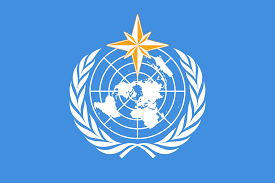WMO at 75: A Call for Funding and Unity to Strengthen Climate Resilience
“WMO is central to global safety, security, and development,” Saulo writes in her article WMO Mandate – A Call for Funding.

As the World Meteorological Organization (WMO) celebrates its 75th anniversary in 2025, its leadership is making a powerful appeal for sustained and sustainable funding to continue its life-saving mission in the face of escalating climate threats. In the latest edition of the WMO Bulletin, released to coincide with the Executive Council meeting, Secretary-General Celeste Saulo urges governments and partners to reaffirm their commitment to one of the world’s most critical yet often underfunded institutions.
“WMO is central to global safety, security, and development,” Saulo writes in her article WMO Mandate – A Call for Funding. “Our mandate underpins national and regional climate action, enabling early warning systems, building resilience, and strengthening capacities in Member States and Territories.”
Mounting Climate Risks, Mounting Financial Gaps
As the frequency and severity of climate-related disasters rise, WMO’s role becomes even more indispensable. Yet, Saulo warns, the organization is grappling with serious funding shortfalls that threaten its ability to deliver the high-quality data and forecasts upon which millions rely.
The WMO Strategic Plan 2024–2027 outlines ambitious goals to scale early warning systems, enhance global coordination, and support national meteorological and hydrological services. Achieving these objectives, Saulo notes, will require the active engagement of both public and private sectors.
Celebrating a Legacy of International Cooperation
Former Secretary-General Michel Jarraud, in WMO at 75: A Shining Example of the Benefits of International Cooperation, reflects on the organization’s enduring relevance. From weather forecasting to climate modeling, the WMO has been a cornerstone of global collaboration and scientific innovation.
Citing the late UN Secretary-General Kofi Annan, who once called WMO “the original networker,” Jarraud underscores the need for new governance models and partnerships to keep pace with 21st-century challenges.
“We must open our doors to non-traditional actors,” he argues, “and foster partnerships at every level—international, regional, national, and local.”
From Forecasts to Phones: The Power of Shared Data
In WMO Systems for Global and National Benefit, Anthony Rea, former WMO Director of Infrastructure, demystifies how weather forecasts reach billions of people daily. Whether it’s a weather app, a TV report, or a ship navigation system, all rely on data shared freely through WMO’s global network of observation systems.
He reminds readers that this vast infrastructure—comprising satellites, marine buoys, aircraft, and ground stations—requires coordination, maintenance, and investment. Without it, early warnings would falter, and climate services would degrade.
Regional Voices: Strengthening Resilience from the Ground Up
The WMO Bulletin also showcases the voices of regional leaders who underscore how global cooperation strengthens local resilience:
-
KOH Li-Na, Director-General of Meteorological Service Singapore, praises the work of WMO’s Regional Association V (South-West Pacific). Through improved forecasting and disaster risk reduction, the region is saving lives and protecting livelihoods.
-
Carlos Fuller, Belize’s Permanent Representative to the UN, shares a personal journey in Meteorology in the Caribbean. His unexpected entry into meteorology illustrates the deep local roots of a global profession, shaped by both science and service.
-
Elena Mateescu and Matthieu Kohl advocate for East-West Collaboration for Early Warnings in Europe, urging greater knowledge sharing across diverse systems to close early warning gaps and build a unified climate defense for the continent.
-
Fetene Teshome, Ethiopia’s representative to WMO and President of Regional Association I (Africa), focuses on Africa’s Future Climate. He emphasizes the power of early warning systems, innovation, and collaboration to navigate climate extremes and plan for sustainable development.
Research as a Catalyst for Global Action
In Promoting Science for Action, WMO staff highlight how decades of WMO-led research have advanced global knowledge in weather, climate, water, and environmental science. Flagship programmes such as the Global Atmosphere Watch (GAW), World Weather Research Programme (WWRP), and World Climate Research Programme (WCRP) have not only driven breakthroughs in modeling and forecasting but have also supported member nations in improving their data systems and services.
This research underpins international efforts to meet global goals, including those under the UN Framework Convention on Climate Change (UNFCCC), the Sendai Framework, and the Sustainable Development Goals (SDGs).
A 75-Year Legacy—and an Urgent Future
As the WMO stands at a critical crossroads, its leaders are unified in their message: the work of weather and climate services is essential, but it cannot be sustained without collective commitment and adequate funding.
“WMO is not just a technical organization,” Saulo writes. “It is a beacon of solidarity, science, and service.”
In an era defined by climate uncertainty, that beacon must shine brighter than ever.










